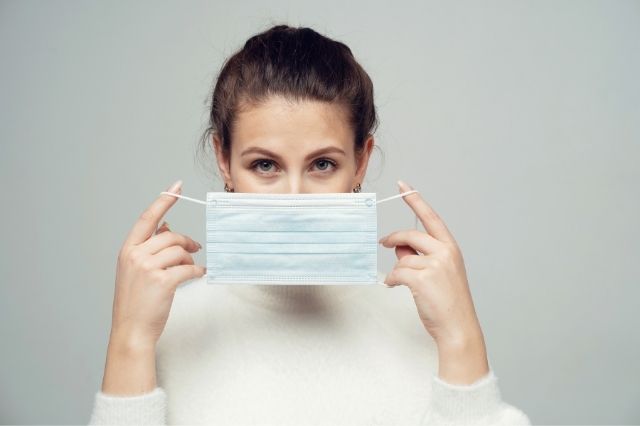Environment
Can You Beat Pollution with A Quality Mask? Myths Debunked

With air pollution reaching unhealthy levels in most of the world’s major cities, people are desperate to protect themselves and their families from harmful toxins and particles in the air.
This has given rise to an entire industry of face masks that promise to keep people safe – but do they work? When wearing an air-purifying mask to protect against pollution, your safety might be at risk because of myths and misunderstandings surrounding these masks.
Wearing a Mask Makes You Immune to Pollution
Of course, it’s true that wearing a mask can help keep pollutants out of your lungs. But you’re certainly not immune to pollution.
Pollution can still harm your skin, irritate your eyes and make breathing difficult even if it doesn’t find its way into your airways. If you suffer from asthma or allergies, wearing a mask could aggravate those conditions.
The best thing to do is take measures like using an air purifier in your home and car and following recommended guidelines for physical activity in areas with high pollution levels (like avoiding jogging on smoggy days).
They may seem inconvenient at first, but they will be much better for your health than trying to wear an impenetrable mask—which is probably impossible anyway!
All Pollution Masks Are the Same
Everyone has heard that wearing a pollution mask from XYZ brand will protect you from various types of pollution, but that’s not true. Since each type of pollutant is made up of different particles and gases, no single mask can effectively protect against them all.
For example, masks designed to protect against smog usually won’t offer protection against pet dander or fine dust.
Some masks might be better than others at protecting against particular pollutants, but don’t assume they’re equally effective. Because every manufacturer has a unique way of marketing their product, what they say can vary widely.
Wearing a Mask All Day Long Is Advisable
Some people wear a mask all day long because they think it will prevent them from inhaling secondhand smoke or pollution. But masks don’t work that way—they filter out fine particulate matter in ambient air, which can cause more irritation to your lungs than fresh air would.
If you want to protect yourself against pollutants, buy an N95 respirator and wear it when you know you’ll be in an area with dirty air. It should last around 3-5 years if properly cared for, though some of its effectiveness may degrade over time.
Only Expensive Masks Can Save You from Pollution
Although expensive masks are high quality, you don’t need to spend a lot of money to protect yourself from pollution.
Look for high Filtration Efficiency Particulate Air (FEPA) or higher rating masks, and make sure it covers your mouth and nose completely. If you can see through it, it isn’t going to be able to filter out any air particles effectively.
Plus, remember you should replace them every month, so if they aren’t expensive, you’ll get more than one month of use out of a cheaper mask.
You Can Reuse Masks as Much as You Want
If you wear a mask for dust, exhaust or other airborne particulates on Monday and then wear it again on Tuesday and Wednesday, how clean is it by Thursday? Not very. Particulate masks don’t filter out microorganisms such as bacteria and viruses.
While they can help reduce airborne particulates like pollen and diesel exhaust, think of them as one piece of an overall strategy to keep healthy.
Using a particle mask once or twice is fine, but if you reuse it too many times over several days without washing it first (wash before each use), you may increase your risk of getting sick with certain illnesses that are transmitted by contact with your hands (the most common way) like norovirus (stomach flu), influenza and tuberculosis.


-



 Captions3 years ago
Captions3 years ago341 Sexy Captions to Fire Up Your Instagram Pictures
-



 Captions3 years ago
Captions3 years ago311 Night Out Captions for Instagram and Your Crazy Night
-



 Captions3 years ago
Captions3 years ago245 Saree Captions for Instagram to Boost Your Selfies in Saree
-



 Captions3 years ago
Captions3 years ago256 Best Ethnic Wear Captions for Instagram on Traditional Dress
-



 Captions3 years ago
Captions3 years ago230 Blurred Picture Captions for Instagram
-



 Captions3 years ago
Captions3 years ago275 Deep Captions for Instagram to Express Your Thoughts
-



 Quotes3 years ago
Quotes3 years ago222 Nail Captions for Instagram to Showcase Your Fresh Manicure
-



 Captions3 years ago
Captions3 years ago211 Laughing Captions for Instagram | Laughter Is the Best Medicine






